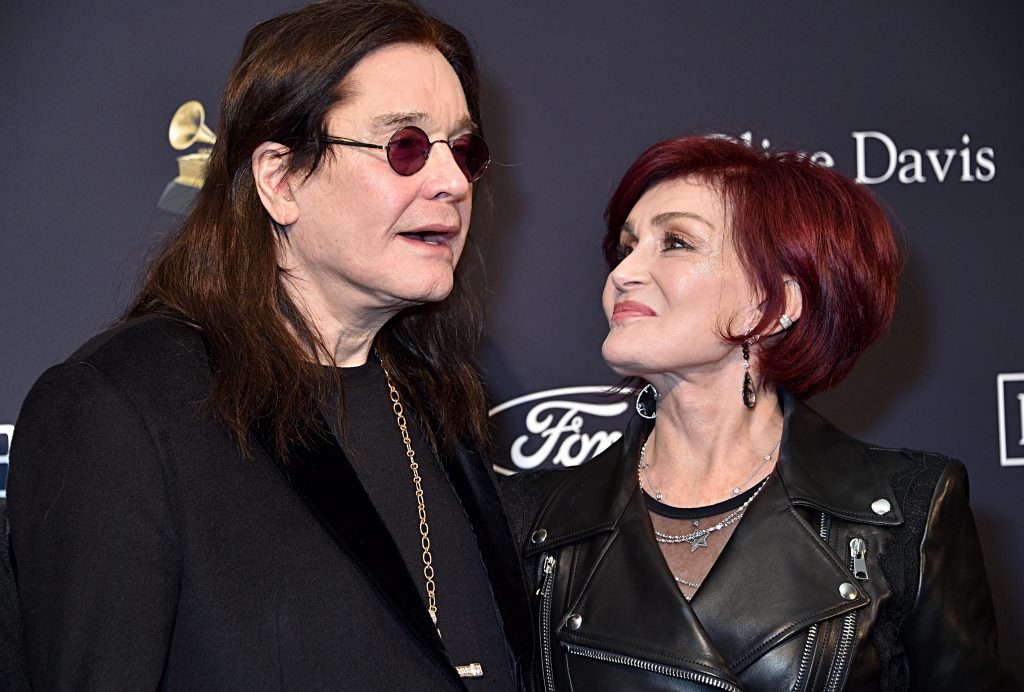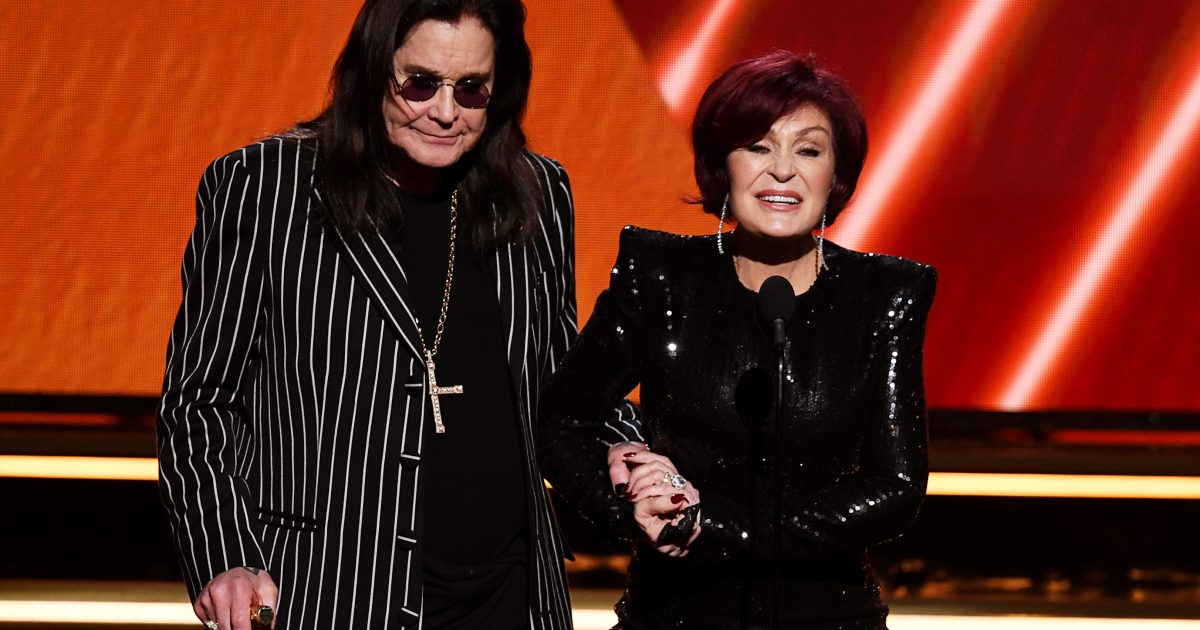Love and Support Through Health Challenges
- Sharon Osbourne, 71, has always displayed unwavering support for husband Ozzy Osbourne, 75, who is up for a potential second Rock & Roll Hall of Fame Induction, his first as a solo artist.
- The music power couple, who married in 1982, are still going strong after many health challenges, including Sharon’s 2002 colon cancer diagnosis, and are more grateful than ever to experience each continued milestone.
- Colonoscopies are used to screen for colon cancer. During the procedure, the doctor is looking for polyps, small growths in the colon which can become cancerous.
- Talk to your doctor today about screening, and be sure to share your family history so that they can advise you when to begin screening. Starting at age 45 is the current guideline, or sooner depending on your overall risk.
Sharon, a colon cancer survivor, began managing Ozzy’s metal band back in 1979 and the pair subsequently fell in love. They married in 1982, had two kids, Kelly, 39, and Jack, 38, and the matriarch has continued to promote Ozzy’s career personally and professionally ever since.
Read More
During an appearance on The Adam Corolla Show in November, Sharon brought attention to her husband deserving this top achievement in music.
RELATED: Fighting Parkinson’s Together, Ozzy and Sharon Osbourne Celebrate 41 Years of Love
“They know that Ozzy deserves to be there,” she said. “The know he’s been a solo artist. You’ve gotta be doing it for 24 years. He’s been 43 years as a solo artist. He sold nearly a hundred million albums as a solo artist. So where is he? Induct him!”

“To be one of the few musicians who’s being considered for a second entry, now as a solo artist, is something I could never have imagined,” Ozzy said after the Hall of Fame nominations — with other artists across all genres such as Lenny Kravitz, Mariah Carey and Mary J. Blige — were announced on Feb. 10.
Ozzy noted that he is “incredibly proud” that he has kept on recording music and receiving “recognition” for it.
Ozzy embarked on his solo career with 1980’s Blizzard of Ozz and another 12 albums, his most recent, Patient Number 9, which broke records debuting at #1 on the U.S. charts and around the world, which is his biggest achievement in six decades of making music. Many in the music industry have credited Ozzy’s longevity to his longtime love.
Sharon’s Cancer Journey
While typically standing by Ozzy’s side as his manager and caregiver, Sharon Osbourne went through her own challenges when she was diagnosed with colon cancer in 2002 and underwent three months of chemotherapy to treat her disease. “Ozzy did good,” she said of his support at the time.
After a successful treatment, thankfully Sharon went into remission.
Chemotherapy is one of several methods used to treat this disease. Other colon cancer treatments include radiation, surgery and immunotherapy.
Colon Cancer Screening
Colonoscopies are used to screen for colon cancer. During the procedure, the doctor is looking for polyps, small growths in the colon which can become cancerous.
Dr. Heather Yeo, a colorectal surgeon and surgical oncologist at Weill Cornell Medicine and NewYork-Presbyterian, explains in an earlier interview, “Polyps are a precursor to colon cancer. For a typical colon polyp to go from a polyp to a cancer takes about 10 years.”
Looking for Polyps During a Colonoscopy
“The usual guidelines are that we screen someone every 10 years,” says Dr. Yeo. “What happens is there’s an extra growth in your colon. And if that growth is left alone too long, the cells keep growing. And eventually, they become a little less normal, and they invade into an area they’re not supposed to.”
Colon Cancer Symptoms
Colon cancer might not immediately cause symptoms, but there are signs to look out for.
Below are possible symptoms:
- A change in bowel habits, such as diarrhea, constipation or narrowing of the stool that lasts for more than a few days
- A feeling that you need to have a bowel movement that’s not relieved by having one
- Rectal bleeding with bright red blood
- Blood in the stool, which might make the stool look dark brown or black
- Cramping or abdominal (belly) pain
- Weakness and fatigue
- Unintended weight loss
It is important to note that displaying some of these symptoms does not mean you have colorectal cancer. You could also have colon cancer and not display any of these symptoms.
Talk to your doctor today about screening, and be sure to share your family history so that they can advise you when to begin screening. Starting at age 45 is the current guideline, or sooner depending on your overall risk.
Learn more about SurvivorNet's rigorous medical review process.

